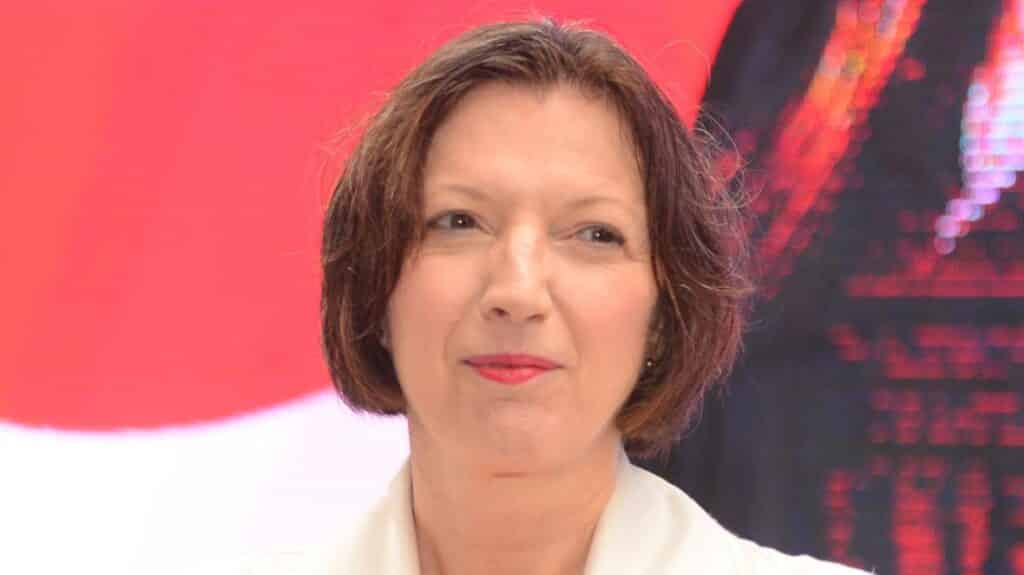Unions have warned ministers that freezing pay for four million workers risks a public sector strike, in a further sign of the backlash against plans to repair the damage that the pandemic has done to the nation’s finances.
Frances O’Grady, general secretary of the TUC, said that proposals for a public sector pay freeze were “morally obscene” and refused to rule out industrial action. “There’s still time for the government to step back and I would encourage them to think again,” she said. “I’m really conscious of the feeling out there that governments only seem to recognise the true value of labour when it’s withdrawn.”
O’Grady (pictured) warned that the “last thing” Rishi Sunak, the chancellor, should do to workers during the pandemic was to announce a real-terms pay cut.
Mr Sunak refused to confirm the plan but said it was “entirely reasonable” to think about public sector pay in the context of the wider economic climate. Speaking on Times Radio, he said that it was important to be “cognisant of what’s happening to wages, to jobs, hours worked across the economy, when we try and calibrate what the right and fair way to set public sector pay is”.
It was reported last week that nearly four million public sector staff face a pay freeze next year. Mr Sunak will use his comprehensive spending review on Wednesday to announce “pay restraint”. In a speech today Anneliese Dodds, the shadow chancellor, will say that public sector staff should not pay for the government’s “irresponsible choices”.
MPs are under pressure to turn down their proposed £3,300 pay rise next year as the chancellor prepares to announce a public sector pay freeze.
MPs are to receive the top-up under proposals for a 4.1 per cent pay rise by the Independent Parliamentary Standards Authority (Ipsa), while four million public sector workers face a real-terms pay cut. The rise would take MPs’ annual salaries up to about £85,000 next year. They have received a pay rise in each of the past six years.
Ms O’Grady said: “Public sector workers have already endured a decade of pay restraint.” She added: “If the government is serious about levelling up Britain, it shouldn’t be levelling down public sector pay. We need to get wages rising faster for everyone — not just for those sat in the Houses of Parliament.”
Joe Ventre, digital campaign manager at the Taxpayers’ Alliance, said: “A pay rise for politicians sends the wrong message at a time when the nation’s finances are in a sorry state. Taxpayers in the private sector have endured a torrid year and shouldn’t be forced to stump up for bumper salary surges.
“If MPs want to gain the confidence of the country, they should agree to a system of performance-related pay that rewards prosperous policy making.”
Ministerial pay, which is set by the government, will remain frozen. As a result ministers will receive a rise to their parliamentary salary but not to their ministerial top-ups.
Rishi Sunak, the chancellor, was asked yesterday whether he would refuse the rise. He told Times Radio: “Ipsa set the pay. It’s not for me individually, in that sense, to do that. Ipsa should set pay policy for MPs as they are independently mandated to do.”
MPs do not have a say over their salaries and must accept the recommendations of Ipsa, which was set up after the expenses scandal. However, they could pay their top-ups back into the Treasury’s coffers, give them to charity or use them to give their staff a rise. Some MPs have already promised not to take the extra money.
Rosena Allin-Khan, a shadow health minister, said last month that the pay rise sent “the wrong message”. Nadhim Zahawi, a business minister, and Lucy Powell, a shadow business minister, promised to give it to charity.
Sir Keir Starmer, the Labour leader, criticised the pay rise last month. “This year of all years we shouldn’t have it,” he said. “That money . . . should be spent on key workers — those who have been on the front line through this pandemic.”
Mr Sunak will set out more details on spending and public sector pay on Wednesday. He is expected to announce an extra £1.25 billion to build prison places and more funding for police recruitment. The government will allocate £4 billion overall to build 18,000 extra prison places across England and Wales over four years.
Mr Sunak is expected to say: “This has been a tough year for us all. But we won’t let it get in the way of delivering on our promises.”


